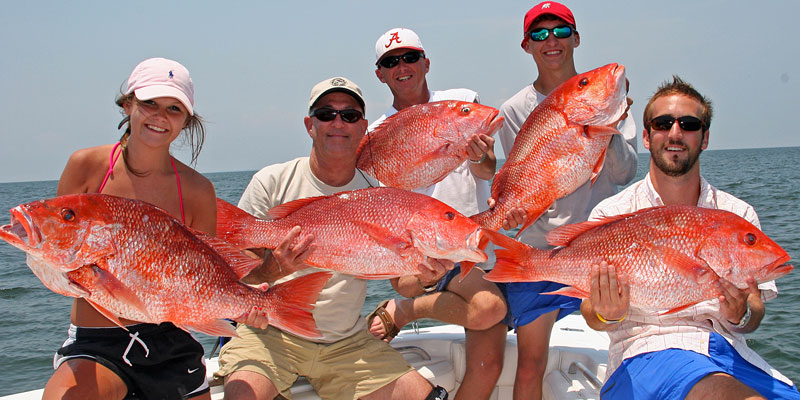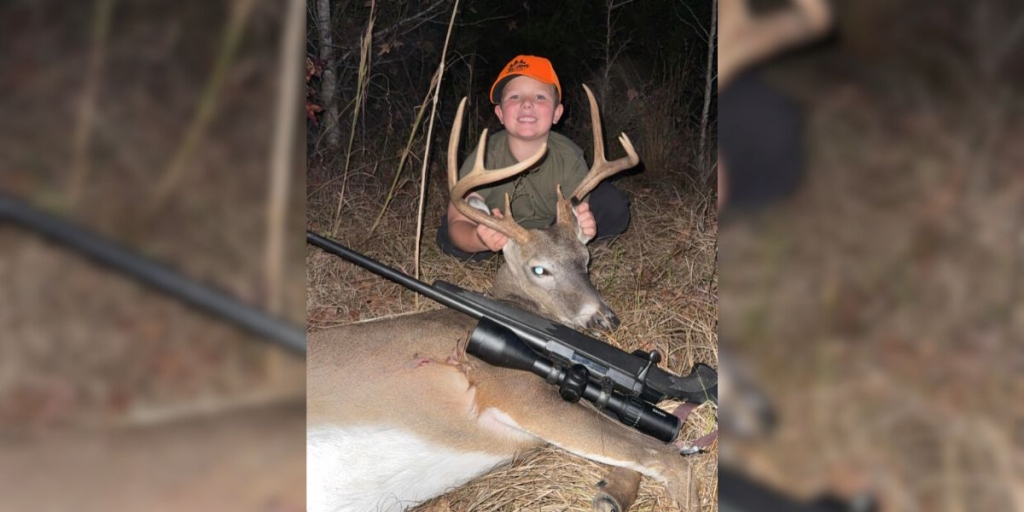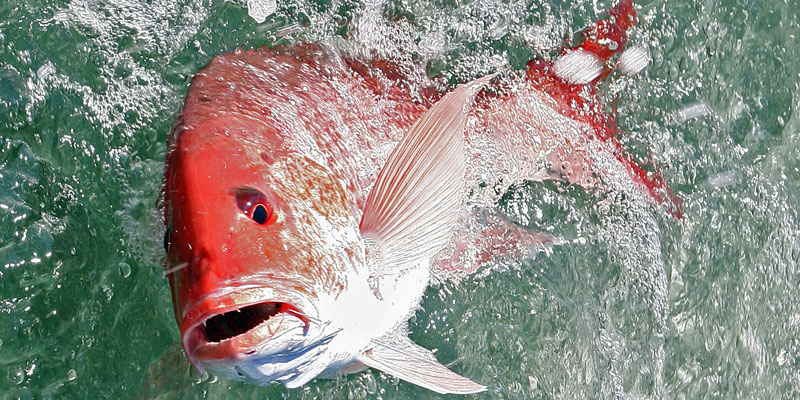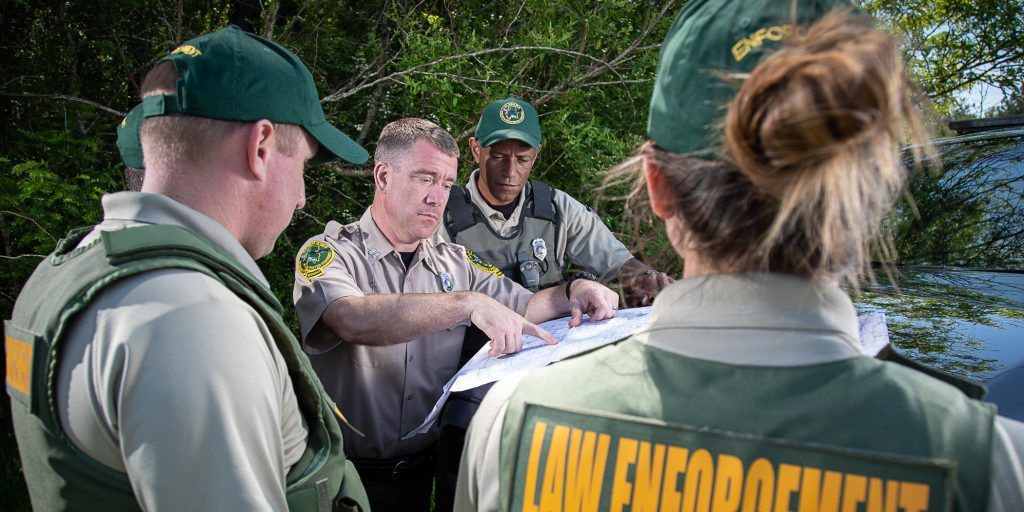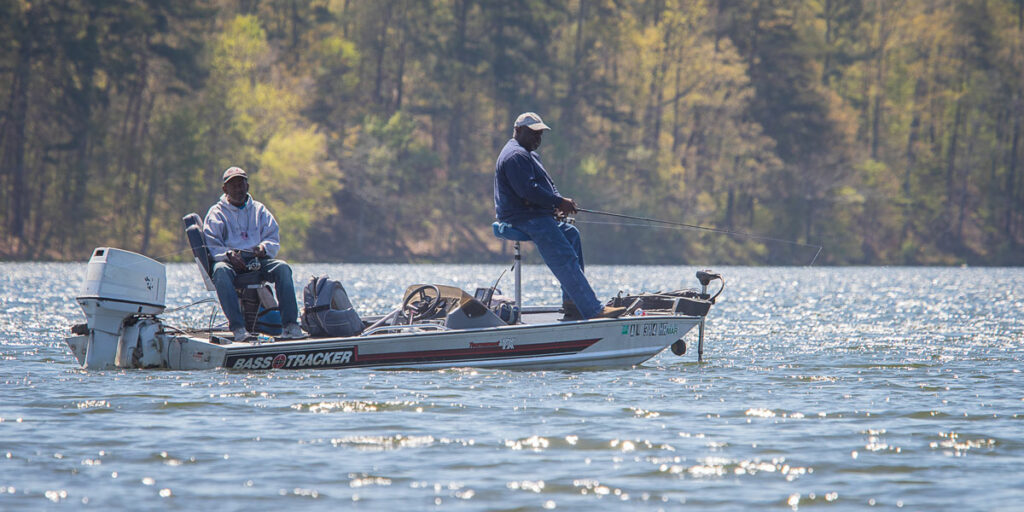Three species – red snapper, Eastern wild turkeys and white-tailed deer – dominated the discussion at the Alabama Conservation Advisory Board (CAB) Meeting last weekend in Tuscaloosa.
With the red snapper recreational season opening on June 1, Chris Blankenship, Commissioner of the Alabama Department of Conservation and Natural Resources (DCNR), thanked Marine Resources and other proponents of a longer red snapper season for Alabama’s potential 47 days of fishing for the state’s most popular reef fish.
“The Gulf states were granted exempted fishing permits to be able to manage the red snapper fishery, recreationally, off our coast,” Blankenship said. “That was done primarily because of good work by Sen. (Richard) Shelby that included language in legislation that allowed the permits. The exempted fishing permits were worked on by Marine Resources Director Scott Bannon and Kevin Anson, our chief biologist at Marine Resources. Our state (private recreational) season will be Fridays, Saturdays and Sundays, starting June 1 and that runs through Labor Day. It will also include the whole week of the Fourth of July. That ends up being 47 days. It could be longer if we have bad weather and the catch is reduced, or it could be shortened by a few days if our catch is above what we are projecting. I do want to commend Scott and Marine Resources for getting that done in a short period of time to be approved by NOAA Fisheries for this year. We will also manage that fishery next year.”
Alabama’s charter fleet remains under federal jurisdiction. The charter season is set for June 1 through July 21.
Bannon explained after the meeting that one of the reasons the exempted fishing permits were approved is the Alabama Red Snapper Reporting System, more commonly known as Snapper Check. The system requires anglers who land red snapper in Alabama to report their catches before the fish are removed from the vessels. Anglers have three ways to report catches: the Outdoor AL app for smartphones, online or by paper reporting forms at select public boat ramps.
The Outdoor AL app has been totally revamped for the 2018 season. The Pocket Ranger app previously used is no longer viable. The new Outdoor AL app must be downloaded onto your smartphone.
“The new Snapper Check will have an offline function, which had been requested by the fishing community so they can submit their report even when they don’t have a cell signal,” Bannon said. “When they do get a cell signal, the system will automatically upload their snapper report. This eliminates any excuse not to report. You can report anywhere. You can report as soon as you catch your fish offshore, or you can report before you remove the snapper from your boat upon landing. We are excited about that portion of it.”
Bannon said anglers still are required to report their snapper catches even if they interacted with Marine Resources personnel.
“Being surveyed by the Marine Resources biological staff at the boat ramp is not considered reporting your fish,” he said. “Additionally, if anglers have been interviewed by enforcement, either stopped while underway or checked at the boat ramp, that is not considered reporting either. You still must report your catch.
“The new Outdoor AL app will also have a tab to review your snapper reports for the year.”
Snapper Check will require the number of red snapper caught and retained. Other questions include where the fish were landed, Mobile or Baldwin County, whether the boat landed at a private or public access point, whether the boat is a charter or private recreational vessel, how many anglers were on the boat and how many dead discards were observed during the fishing day. Dead discards are red snapper that are caught and released and do not survive.
“Dead discards are in the management plan,” Bannon said. “The feds account for that, and Marine Resources accounts for that to give us the data point for fish mortality.”
New this year is the ability for anglers to report their catches of gray triggerfish and greater amberjack.
“Triggerfish and amberjack are two hot topics,” Bannon said. “They are highly desirable species. There are pending changes in the management of amberjack, and we made some changes to triggerfish. We would like to gather more real data on what fish are being landed in Alabama.”
The gray triggerfish limit was reduced to one fish per person with a minimum size of 15 inches fork length. The amberjack limit is one per person with a minimum size of 34 inches fork length.
Amberjack and triggerfish seasons close on June 1 and are scheduled to reopen on August 1.
In wildlife news, a significant threat to Alabama’s deer hunting tradition occurred last season when a 4½-year-old buck in west-central Mississippi tested positive for chronic wasting disease (CWD), which is always fatal. Mississippi has tested more than 1,400 deer since October 2017 and no other animals have been detected with CWD. Louisiana has also conducted extensive testing inside the 25-mile CWD containment zone, which crosses the Mississippi River, and none of those animals have tested positive for CWD.
Since that positive test, Alabama Wildlife and Freshwater Fisheries (WFF) officials have been working rapidly to update the plan to deal with CWD if necessary.
“I’m happy to report we have finished the revision to our surveillance and response plan for chronic wasting disease as to what we would do and how we would respond if CWD were ever discovered here,” Blankenship said. “There was a lot of great work by Keith (Gauldin, Wildlife Section Chief), other people in the Wildlife Section, along with people in our Enforcement Section. Our staff has also researched what was happening around the country to help us put a plan together to take the best and most relevant science to ensure our state is ready, one, to keep it out of our state, and two, that we are ready to respond in the unfortunate case that CWD is detected in Alabama.”
The updated response plan is available online. Type chronic in the search box to pull up the link to “Chronic Wasting Disease – What You Should Know.”
Agriculture and Industries Commissioner John McMillan, who sits as an ex-officio member on the Advisory Board, said the CWD testing equipment that was recently purchased with funds provided by WFF has been certified by the U.S. Department of Agriculture. The technician tasked with operating the equipment, which can test up to 90 samples per day, has also been certified.
“Now we are no longer dependent on anybody to get those tissue samples tested,” Blankenship said. “We are self-contained in Alabama. We don’t have to wait on anybody. We take our samples to the Department of Agriculture lab at Auburn University. We will get those test results quickly and be able to respond as soon as possible. I appreciate the partnership with the Department of Agriculture as well as the Alabama Department of Public Health and the Alabama Department of Environmental Management to make sure we have a robust response plan.”
WFF Director Chuck Sykes highlighted the potential devastating effects CWD could have on Alabama. Sykes has been traveling around the state to speak at seminars hosted by ALFA (Alabama Farmer’s Federation) and the Alabama Treasure Forest Association. The next seminar is scheduled for Monroeville on May 29 and another is set for Tuscaloosa on June 7.
“We’re not trying to scare people to death,” Sykes said. “We want them to be informed that this is a serious issue. I don’t want to pour water on anybody’s issues here, but dog hunting, baiting, night hunting, poaching, all of that pales in comparison to problems we’re going to have if CWD ever gets in the state. As Commissioner McMillan says, we all need to band together. This is not a dog hunter issue or a private landowner issue. This is a hunter issue. I encourage your friends, families and hunting partners to come to one of the seminars and listen and ask questions.
“Misinformation is running rampant out there right now. We need to get the right information out there.”
CAB member Jessica Butler of Scottsboro introduced motions that would change turkey season for the 2018 fall and 2019 spring turkey seasons. Butler’s first motion proposed a change to the starting date of the spring season from March 15 to the third Saturday in March, which could range from March 15 to March 21. After discussion, the Board passed the motion.
Butler’s second motion to reduce the season bag limit from five birds to four led to considerable debate among the Board members. At the conclusion of the discussion, the Board voted down the reduced bag limit by a 7-4 margin.
David Rainer is an award-winning writer who has covered Alabama’s great outdoors for 25 years. The former outdoors editor at the Mobile Press-Register, he writes for Outdoor Alabama, the website of the Alabama Department of Conservation and Natural Resources.




